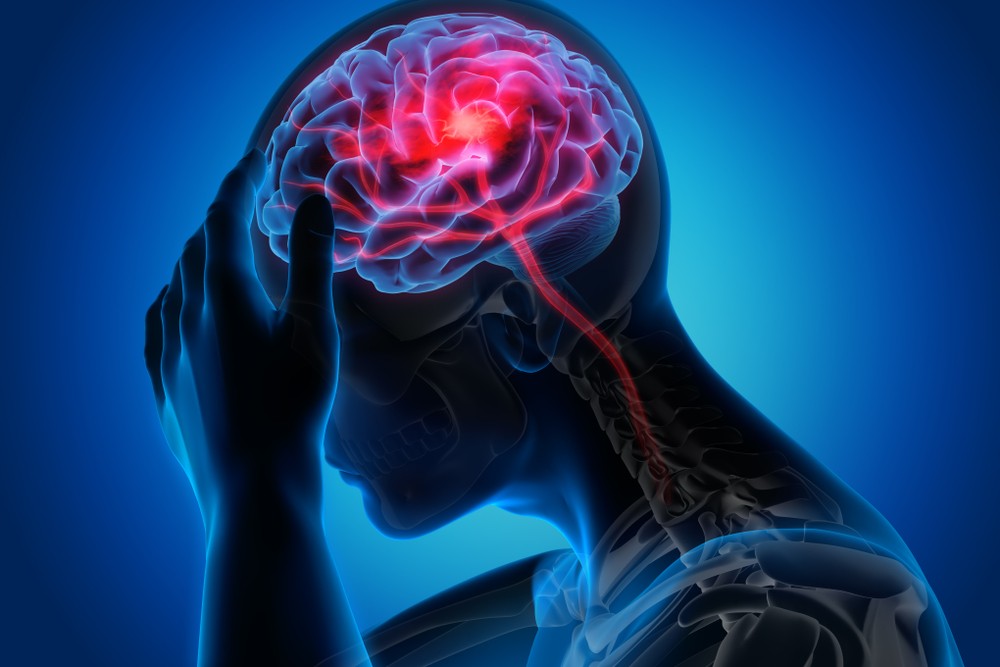 A recent study by the National Institute of Health (NIH) has revealed that patients who suffer from debilitating migraine headaches may be at an increased risk for developing another painful condition: temporomandibular joint disorder, or TMJD for short. Temporomandibular joint disorder is a condition of the temporomandibular joint, which connects the jaw to the rest of the skull. The disorder occurs when the temporomandibular joint becomes out of alignment, causing everything from pain and soreness of the jaw to tinnitus; teeth grinding (also known as bruxism); head, neck and back aches; and the inability to open and close the mouth and jaw.
A recent study by the National Institute of Health (NIH) has revealed that patients who suffer from debilitating migraine headaches may be at an increased risk for developing another painful condition: temporomandibular joint disorder, or TMJD for short. Temporomandibular joint disorder is a condition of the temporomandibular joint, which connects the jaw to the rest of the skull. The disorder occurs when the temporomandibular joint becomes out of alignment, causing everything from pain and soreness of the jaw to tinnitus; teeth grinding (also known as bruxism); head, neck and back aches; and the inability to open and close the mouth and jaw.
According to Bellmore, New York, neuromuscular dentistry specialist Dr. Gary Lederman, an estimated 15 percent of the population suffers from temporomandibular joint disorder - and some of those people could also be suffering from migraine headaches.




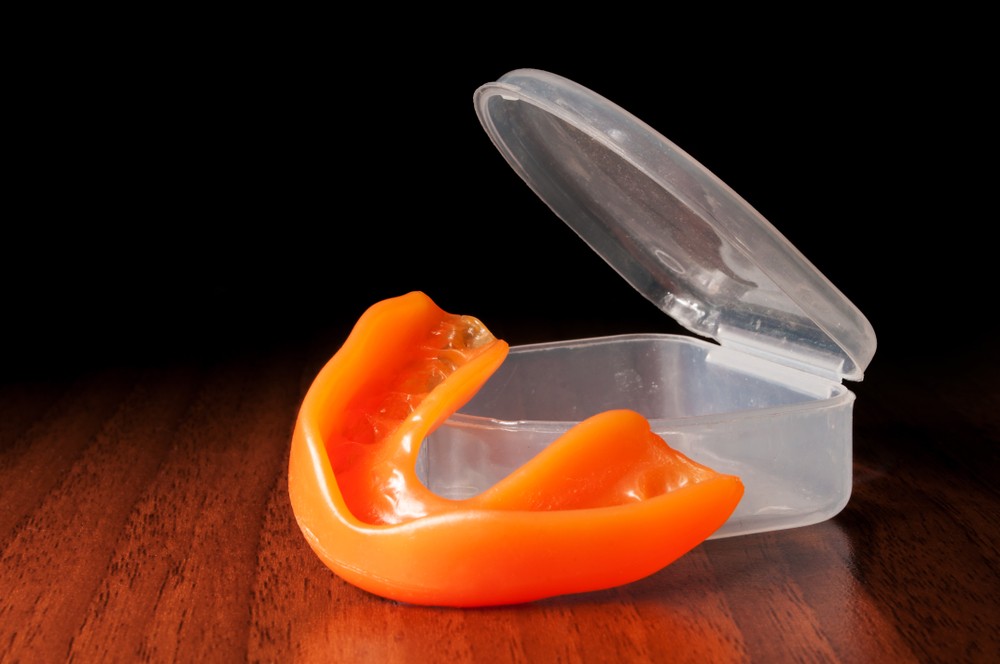 Do you wear a mouth guard? Maybe you feel like you don’t need to because you don’t play a sport, but there are many reasons people wear mouth guards that have nothing to do with athletic activities. Mouth guards can be a significant financial investment for some people, but believe it or not, they can often pay for themselves over time, especially when it comes to wear and tear on the teeth. Here are a few ways in which anyone can benefit from wearing a mouth guard.
Do you wear a mouth guard? Maybe you feel like you don’t need to because you don’t play a sport, but there are many reasons people wear mouth guards that have nothing to do with athletic activities. Mouth guards can be a significant financial investment for some people, but believe it or not, they can often pay for themselves over time, especially when it comes to wear and tear on the teeth. Here are a few ways in which anyone can benefit from wearing a mouth guard. Parkinson’s disease affects an estimated 10 million people worldwide, with men 1.5 times more likely to have the illness than women. Parkinson’s disease is a progressive nervous system disease caused by degeneration of the brain’s basal ganglia and the brain’s dopamine transmitter. Parkinson’s disease most commonly affects persons over the age of 50, but approximately 4 percent are diagnosed with the illness prior to age 50.
Parkinson’s disease affects an estimated 10 million people worldwide, with men 1.5 times more likely to have the illness than women. Parkinson’s disease is a progressive nervous system disease caused by degeneration of the brain’s basal ganglia and the brain’s dopamine transmitter. Parkinson’s disease most commonly affects persons over the age of 50, but approximately 4 percent are diagnosed with the illness prior to age 50. Stress. It can strike at any time, any place, and for any reason. But when it comes to stress, nothing seems to bring it on quite like work. Whether it’s a tough client, a fast-approaching deadline or a project that just won’t seem to come together, for most people, work stress is just a fact of life. Worse yet, stress can cause us to do some bad things, including grinding our teeth, clenching our jaws and even mindlessly snacking on sugary foods.
Stress. It can strike at any time, any place, and for any reason. But when it comes to stress, nothing seems to bring it on quite like work. Whether it’s a tough client, a fast-approaching deadline or a project that just won’t seem to come together, for most people, work stress is just a fact of life. Worse yet, stress can cause us to do some bad things, including grinding our teeth, clenching our jaws and even mindlessly snacking on sugary foods. There’s something different about actress Dakota Johnson these days. Following a recent appearance on the talk show The Tonight Show Starring Jimmy Fallon, Johnson revealed that a change in her famous gap-toothed smile was due to the removal of a permanent retainer. According to Johnson, once the retainer was removed, her teeth shifted, and the signature space between her top two central incisors closed up. Johnson addressed concerns of saddened fans who have grown accustomed to the actress’s teeth, which in a sea of spotless Hollywood smiles always stood out. She assured them that the gap would be back following further treatment.
There’s something different about actress Dakota Johnson these days. Following a recent appearance on the talk show The Tonight Show Starring Jimmy Fallon, Johnson revealed that a change in her famous gap-toothed smile was due to the removal of a permanent retainer. According to Johnson, once the retainer was removed, her teeth shifted, and the signature space between her top two central incisors closed up. Johnson addressed concerns of saddened fans who have grown accustomed to the actress’s teeth, which in a sea of spotless Hollywood smiles always stood out. She assured them that the gap would be back following further treatment. If you’re like most people, you feel a lot better after getting a good night’s sleep. But for some people, staying up late and getting up early is just a way of life. Unfortunately, according to a new study from Seoul National University Boramae Medical Center in Seoul, South Korea, sleeping less than five hours (or more than nine hours) could be detrimental to your health.
If you’re like most people, you feel a lot better after getting a good night’s sleep. But for some people, staying up late and getting up early is just a way of life. Unfortunately, according to a new study from Seoul National University Boramae Medical Center in Seoul, South Korea, sleeping less than five hours (or more than nine hours) could be detrimental to your health. When it comes to sleeping, there’s a lot of misinformation about what’s healthy and what’s not. But unfortunately, what you don’t know really can hurt you. Check out these three sleep-related myths and the real science behind them.
When it comes to sleeping, there’s a lot of misinformation about what’s healthy and what’s not. But unfortunately, what you don’t know really can hurt you. Check out these three sleep-related myths and the real science behind them. A recent article in the news magazine Philly Voice shed light on a subject that may come as very little surprise to many of Dr. Lederman’s patients. Temporomandibular joint disorder, or TMJ disorder, is becoming increasingly common - especially among a certain subset of the population.
A recent article in the news magazine Philly Voice shed light on a subject that may come as very little surprise to many of Dr. Lederman’s patients. Temporomandibular joint disorder, or TMJ disorder, is becoming increasingly common - especially among a certain subset of the population.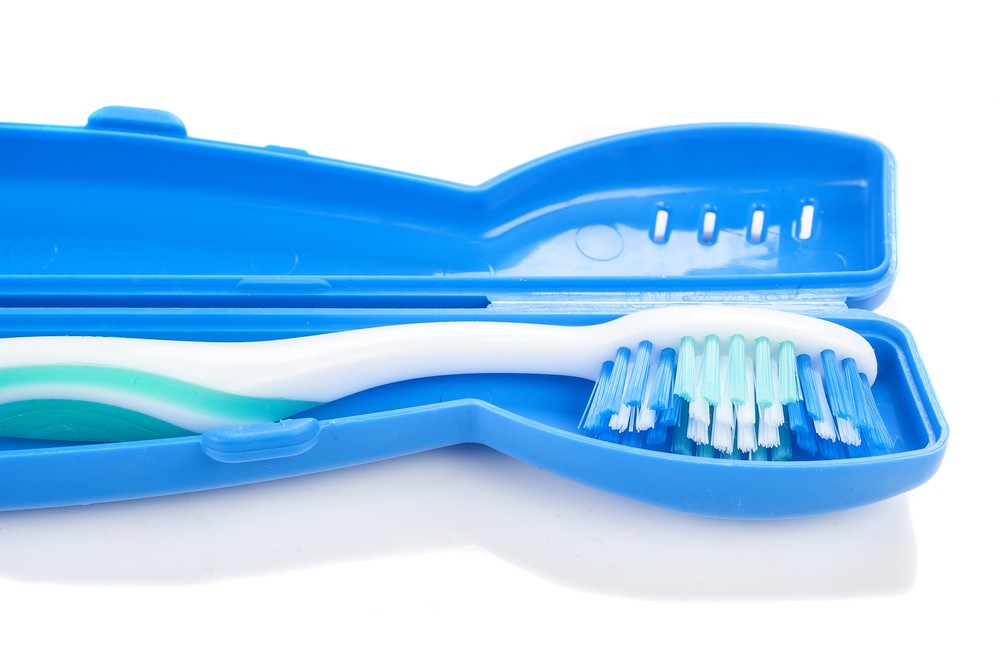 It’s a fact of life these days that most of us work pretty long hours. Those late workdays don’t leave time for much outside of work - including maintaining our oral health. But don’t let a hectic workday be your excuse to not care for your teeth. It may seem impossible, or at very least not worth the trouble, but keeping your teeth clean during the workday is a great way to stave off many oral health problems that could arise down the line. Here are a few of our favorite tips.
It’s a fact of life these days that most of us work pretty long hours. Those late workdays don’t leave time for much outside of work - including maintaining our oral health. But don’t let a hectic workday be your excuse to not care for your teeth. It may seem impossible, or at very least not worth the trouble, but keeping your teeth clean during the workday is a great way to stave off many oral health problems that could arise down the line. Here are a few of our favorite tips. Has your temporomandibular joint disorder ever hurt so badly that you just wished you could throw out your old temporomandibular joint and get a whole new one? Well, the good news is that in the future you may be able to do just that. For now, however, that procedure is reserved for very rare cases, such as the recent case of a man in Cyprus who received a new temporomandibular joint following cancer treatment.
Has your temporomandibular joint disorder ever hurt so badly that you just wished you could throw out your old temporomandibular joint and get a whole new one? Well, the good news is that in the future you may be able to do just that. For now, however, that procedure is reserved for very rare cases, such as the recent case of a man in Cyprus who received a new temporomandibular joint following cancer treatment. Temporomandibular joint disorder can take the pleasure out of many things most people take for granted: singing, talking - even Halloween. That’s right. Halloween should be a fun day full of candy and costumes, but for someone with TMJ disorder, it can be a real nightmare. That’s because TMJ disorder can make normally enjoyable activities painful. But Halloween doesn’t have to be scary for your TMJ disorder! Here are some TMJ-disorder-friendly Halloween tips for the most spooktacular Halloween ever.
Temporomandibular joint disorder can take the pleasure out of many things most people take for granted: singing, talking - even Halloween. That’s right. Halloween should be a fun day full of candy and costumes, but for someone with TMJ disorder, it can be a real nightmare. That’s because TMJ disorder can make normally enjoyable activities painful. But Halloween doesn’t have to be scary for your TMJ disorder! Here are some TMJ-disorder-friendly Halloween tips for the most spooktacular Halloween ever. It’s not always easy being a woman - especially when it comes to your temporomandibular joint. That’s because, according to research, women ages 20 to 35 experience the most severe temporomandibular joint disorder symptoms of any age or gender group.
It’s not always easy being a woman - especially when it comes to your temporomandibular joint. That’s because, according to research, women ages 20 to 35 experience the most severe temporomandibular joint disorder symptoms of any age or gender group. Arthritis is a disorder that causes painful inflammation of the joints. An estimated 350 million people worldwide suffer from some form of arthritis, with 40 million of those cases right here in the United States. But despite its frequent occurrence, you may not realize that arthritis can sometimes be responsible for another painful joint condition: temporomandibular joint disorder, or TMD. That’s because TMD is a disorder of the joints too – the temporomandibular joints. Though TMD can be caused by many different things, many people don’t realize that arthritis could be the culprit.
Arthritis is a disorder that causes painful inflammation of the joints. An estimated 350 million people worldwide suffer from some form of arthritis, with 40 million of those cases right here in the United States. But despite its frequent occurrence, you may not realize that arthritis can sometimes be responsible for another painful joint condition: temporomandibular joint disorder, or TMD. That’s because TMD is a disorder of the joints too – the temporomandibular joints. Though TMD can be caused by many different things, many people don’t realize that arthritis could be the culprit.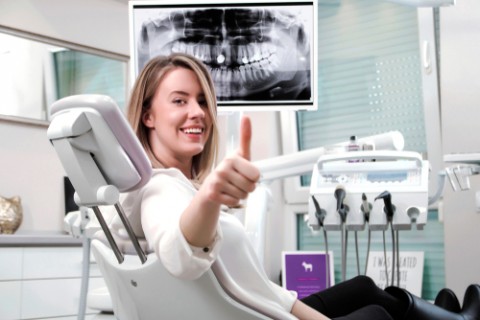 For people who suffer from both migraines and temporomandibular joint disorder (TMD), the two conditions can seem so bad they’re related. Now, a new study by the National Institute of Health (NIH) has discovered they might be.
For people who suffer from both migraines and temporomandibular joint disorder (TMD), the two conditions can seem so bad they’re related. Now, a new study by the National Institute of Health (NIH) has discovered they might be. If you’re one of the 10 million Americans suffering from temporomandibular joint disorder, or TMD for short, you’re probably already aware of the many different types of pain TMD causes. In addition to the jaw pain that is synonymous with TMD (after all, the temporomandibular joint is in the jaw), you may experience pain in other areas of the head and body. But for the millions of estimated undiagnosed TMD patients, their pain may not be an obvious clue. That’s because as TMD sufferers are probably already aware, every case of TMD is different, and the pain isn’t always in the jaw.
If you’re one of the 10 million Americans suffering from temporomandibular joint disorder, or TMD for short, you’re probably already aware of the many different types of pain TMD causes. In addition to the jaw pain that is synonymous with TMD (after all, the temporomandibular joint is in the jaw), you may experience pain in other areas of the head and body. But for the millions of estimated undiagnosed TMD patients, their pain may not be an obvious clue. That’s because as TMD sufferers are probably already aware, every case of TMD is different, and the pain isn’t always in the jaw.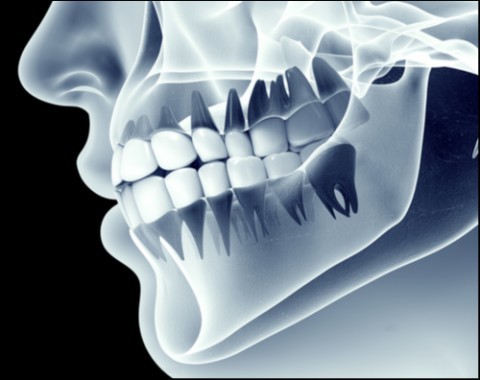 It’s no secret that pollution and environmental damage can have harmful effects on your health. You’ve probably seen news reports about how poor air quality can contribute to an increase in skin and lung cancers, among other things. But did you know that the environment can also be linked to chronic conditions like Temporomandibular Joint Dysfunction (TMJ) and sleep apnea? Dr. Gary Lederman discusses how something as simple as the air we breathe can have a huge impact on our bodies.
It’s no secret that pollution and environmental damage can have harmful effects on your health. You’ve probably seen news reports about how poor air quality can contribute to an increase in skin and lung cancers, among other things. But did you know that the environment can also be linked to chronic conditions like Temporomandibular Joint Dysfunction (TMJ) and sleep apnea? Dr. Gary Lederman discusses how something as simple as the air we breathe can have a huge impact on our bodies.